#taxis
Abandoned History: The Vehicle Production Group and Its MV-1, Accessible Mobility MPV
Historically speaking, the handicap accessible vehicle market in North America was catered to by aftermarket companies, who’d convert standard passenger vehicles (usually larger vans) to be accessible. But in the early 2000s, a couple of entrepreneurs had a new idea: A commercial vehicle designed from the get-go as accessible. Let’s talk about the Vehicle Production Group, it’s a bit of a wild ride.
Captain Obvious Returns: Studies Say Ride-Hailing Apps Cause Pollution
As luck would have it, hiring thousands of drivers to cruise around a city in search of their next fare has some negative environmental impacts. That’s the word coming from expert researchers at Carnegie Mellon University, who we can only hope are prepared to tackle similarly impossible quandaries — like establishing what happens to an object when it’s dropped or reaching a final determination on the wetness of water.
The study is inextricably linked to one we covered in 2018 asserting that ride-hailing services actually created more traffic congestion because it treads extremely familiar ground and seems like something that we should have already figured out on our own. But it’s also at odds with the years of messaging we’ve gotten from technology firms that have promised on-demand services (like Uber or Lyft) would usher in a new era of urban transportation striving for clearer roads and cleaner air. Based on little more than the conjecture of executives, we’ve generally accepted ride-hailing as “greener” than the alternatives and it’s well past time that we started actually thinking about it.
Lyft Abandons Operations in California Following Court Decision
As Uber contemplates ways to avoid having to close up shop in California following the passing Assembly Bill 5, Lyft is simply suspending operations as it waits to see how the appeals process works out.
On Thursday, the fuchsia-themed ride-hailing firm said it would not be able to maintain business as usual in the Golden State, citing several of the reasons we prognosticated in yesterday’s article about Uber mulling a franchise model. Included in the release was an inability to hire enough drivers in a manner that would appease the new law, resulting in reduced service (especially in suburban and rural areas), and a pricing increase deemed unfeasible for existing customers if implemented.
Uber Considers Franchise Model After California Cracks Down on Contractors
California took on the gig economy by passing updated labor laws (Assembly Bill 5) mandating companies treat contractors more like regular employees. Some predicted this would be the death knell for ride-hailing firms like Uber and Lyft, who are entirely dependent on them for their daily operations. Worse still, these companies remain unprofitable despite most of the the physical expenses being pushed onto drivers — who remain responsible for the upkeep of their own vehicles after receiving their cut of the fare.
Earlier this month, Uber CEO Dara Khosrowshahi published an op-ed in The New York Times suggesting contractors deserved better, but current circumstances dictated that the situation remain largely unchanged. He later suggested the service might have to leave California as it restructured its business model to appease new rules, saying it had to reclassify drivers as employees with all the accompanying benefits (paid leave, minimum wage, unemployment insurance, etc). San Francisco Superior Court Judge Ethan P. Schulman said that would be fine last week when he ruled that Uber and Lyft drivers were essential to operations and could not be treated as tangential to the business. He wanted to be absolutely clear that exemptions would not be made for ride-hailing firms, stating that it was “high time that they face up to their responsibilities to their workers and to the public.”
Uber lost $8.5 billion in 2019, making it difficult to envision a future where it can begin offering more to its drivers. But it also doesn’t want to lose out on market share as the industry jockeys for position. There needs to be another solution.
What about moving to a franchise model?
Study Says Autonomous Taxis Will Cost Users More Than Car Ownership
When Sir Thomas More coined the term “utopia,” he lifted two words from Ancient Greek that roughly translate into “not a place.” Turns out people from the 16th century still understood satire, perhaps better than we do today. After all, we are the ones operating under the assumption that we can remap society in order to build consequence-free transportation network without a shred of humor to keep us grounded.
We may not need satire in this instance, however. A new study published in the American Journal of Public Health asks questions about how just effectively the shift to autonomy will benefit society as a whole. Industry leaders have broadly framed the shift toward self-driving as kicking down the door to an idyllic universe where no one wants for transportation, with autonomous taxis serving as the first wave of this planned paradise. The reality may be vastly different that what’s being sold, however.
From Contractor to Employee: California Ruling Poised to 'Decimate' Uber, Lyft
An April ruling from the California Supreme Court determined that most contract workers, including those partnered with ride-hailing companies like Uber and Lyft, could actually qualify as employees under the state’s wage laws.
While that’s great in an era when wages can’t seem to match the constantly ascending cost of living and companies are cutting corners to maximize profits, it’s not so great for outfits that depend on contract workers to exist — like the aforementioned ride-hailing firms.
Uber and Lyft managed to balloon their revenues far beyond the billion-dollar mark, but neither company is currently profitable. Despite taking a cut of every single fare, expenses still result in a net loss for the companies during most rides. Assuming California forces them to tack on employee benefits and all the associated trimmings, both businesses could be in for a world of hurt.
Rare Rides: 1986 London Coach Sterling Limousine - Formality and Finery
Today’s Rare Ride hails from beyond the normal reaches of even astute car enthusiasts’ knowledge base. It was the brainchild of some British executives who were convinced there was a market for the classic London Taxi in the United States. In addition to standard taxis, the company offered one that was thoroughly luxed and broughamed.
I’m just not sure.
Captain Obvious Finally Arrives: Ride Hailing Actually Congests City Traffic
A recurring theme among ride-hailing executives from the likes of Lyft and Uber is that their platforms will help reduce congestion in the world’s most populous cities. However, anyone actually living in these places will tell you it doesn’t appear to be working. Cities like New York were already clogged with taxi cabs but, instead of seeing all of these drivers buy personal vehicles to enlist as independent contractors for ride-hailing firms, Uber and Lyft brought in new drivers, more vehicles, and fresh competition.
Worse yet, ride-sharing alternatives like Uber Pool have moved people away from buses and trains and placed them in the backseats of cars — further compounding the problem. It turns out city dwellers who already owned an automobile didn’t suddenly decide to get rid of it, and those who were heavily invested in mass transit discovered an affordable car-based alternative.
Uber's Legal Woes Are Nothing Compared to Taxicabs' Early Days
The Uber transportation network has had its share of legal woes. When there’s a Wikipedia entry specifically on protests and legal action, including hundreds of lawsuits, against Uber, you know the company is doing its part in keeping attorneys employed.
Uber’s legal matters include claims of employment discrimination, harassment and retaliation, invasion of privacy, labor law violations, an intellectual property dispute with Alphabet/Google’s Waymo division over autonomous vehicles, the use of “grayballing” software to avoid detection by police enforcing local taxi laws, the possible criminal use of an application named Hell that tracked its competitors at Lyft, plus continuing drama involving Uber’s previous CEO Travis Kalanick.
That may seem like a unsavory stew of legal problems, but it’s small potatoes compared to the early days of the taxicab business, when bribery, stock manipulation, trademark infringement, jury tampering, bombings, and even murder was how business was done.
Nissan, Renault, Mitsubishi Hunting for Robo-taxi Deals With Tech Companies
The alliance consisting of Nissan, Renault, and Mitsubishi Motors is currently searching for partners for a plunge into the robo-taxi business. While chairman Carlos Ghosn claims mobility will never replace traditional ownership, he acknowledges the need to explore other avenues to remain competitive.
“A lot of people think this is substitution. It’s not — it’s addition,” Ghosn said in November. “The traditional business of building cars and selling cars and owning cars is going to continue.”
However, the supplemental businesses aren’t going off half-cocked. Ogi Redzic, Alliance senior vice president, has said he’s personally overseeing about 1,000 employees tasked with developing connectivity services for the automotive group and intends to announce the partners for the new autonomous cab service in the coming months.
Uber's New CEO Choice Should Improve the Brand's Tarnished Image
Uber Technologies has chosen Expedia’s Dara Khosrowshahi to run the global ride-hailing firm now that ex-CEO Travis Kalanick has been twice ousted from his executive role. While Uber confirmed it has named a replacement, it declined to make specific reference to Khosrowshahi, saying the board would inform employees first. Likewise, Expedia has not yet confirmed that its current CEO is leaving.
Hoping to distance itself from numerous scandals, Uber has vowed to end what many have called an unsavory corporate culture. As the company’s co-founder, Kalanick enjoyed sweeping authority on the board and has been frequently blamed for its misdeeds — primarily due to his encouraging of an unstructured, dog-eat-dog mentality among the staff. This may have something to do with the surprise choice of Khosrowshahi. As a former Iranian refugee, he is extremely critical of the Trump administration’s travel ban and has received praise in the media for his progressive politics.
Drivers Are Pissed About Lyft's New Partnership With Taco Bell
Taco Bell and ride-hail company Lyft announced plans this week to debut “a unique ride-thru” experience called “Taco Mode,” which will allow patrons to request a pit stop at the nearest Taco Bell location. Lyft claims it’s the perfect option for “passengers seeking the ultimate Taco Bell experience.”
While riders can already request to be driven to the restaurant with some of the worst-maintained bathrooms imaginable, Lyft promises the app makes the overall endeavor of buying fast food “more convenient — and fun — than ever.”
Why would these companies join forces? According to the press release, it’s because they “are two like-minded brands at the forefront of technology and innovation.” Don’t laugh. After all, Taco Bell was the company that realized you could make a taco shell out of fried chicken, while Lyft was the organization that took Uber’s business model and added furry pink mustaches.
They also both serve the late-night community. The restaurant chain provides a “fourth meal” to individuals that are too drunk or stoned to cook and the ride-hailing service keeps them from endangering others by stopping them from operating a motor vehicle. On the surface, it seems like a natural fit for a genius cross-marketing opportunity — until you place yourself into the shoes of the driver plighted to slop these disgusting animals in the backseat.
Self-driving Taxis Will Become the Most Disgusting Spaces on Earth
With the entire automotive industry looking toward a future of driverless mobility, commercially owned self-driving taxis seem poised to be on the frontline of tomorrow. However, nobody seemed to realize that these vehicles will eventually become little more than mobile toilets.
Animals are universally disgusting and humans are no exception. While we’ve mastered land, air, and sea, consider the spaces we occupy while we traverse those expanses. Rental cars are returned filled with candy wrappers, spilt soda, and human hair. Uber vehicles are routinely vomited in. The subway is a haven for disease. Airplane interiors experience havoc within the first hour of a flight as the worst of us begin defecating into the seats, too lazy and weak to control ourselves.
Autonomous taxis aren’t likely to endure better treatment. Without a driver present, the urge to have drunken sex will be far too strong — and those odds only increase when you add a second occupant to the equation. With nobody watching, we’ll leave half-consumed hamburgers and cans of sweetened tea on their floors that will roll around and turn the carpet into a sticky magnet for larger pieces of garbage.
New Massachusetts Law Hands Part of Uber Fare to Cab Companies
From the everyone’s a winner! file comes this story. Soon, whenever a Massachusetts resident hails an Uber, the state will hand part of their fare to their direct competition.
Reuters reports that Massachusetts lawmakers are poised to levy a five-cent-per-trip levy on ride-hailing apps like Uber and Lyft — a new corporate welfare initiative that is the first of its kind in the U.S.
Ford's Transit Taxi To Connect Passengers Worldwide
With a few successes under Ford’s strap with the American buckle, the Blue Oval made be known its aspirations to go for the world championship belt in ferrying drunk revelers and harried air travelers with their Transit Connect Taxi in its debut in Hong Kong.



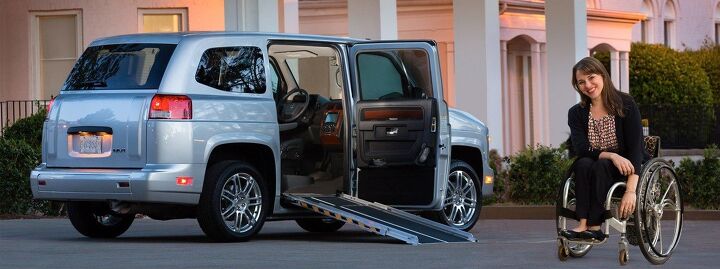
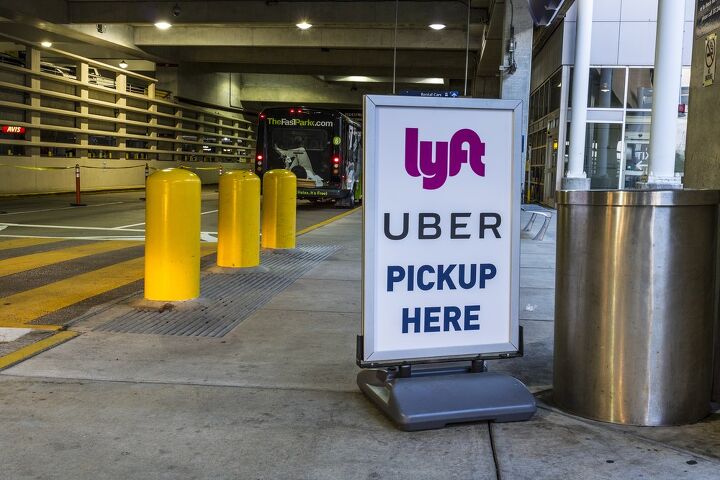

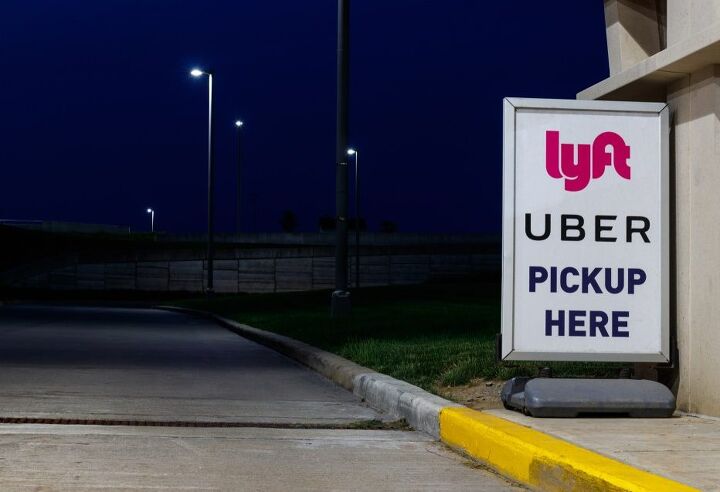

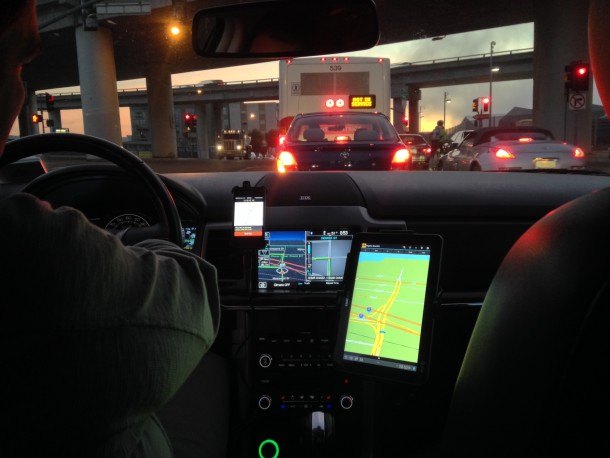


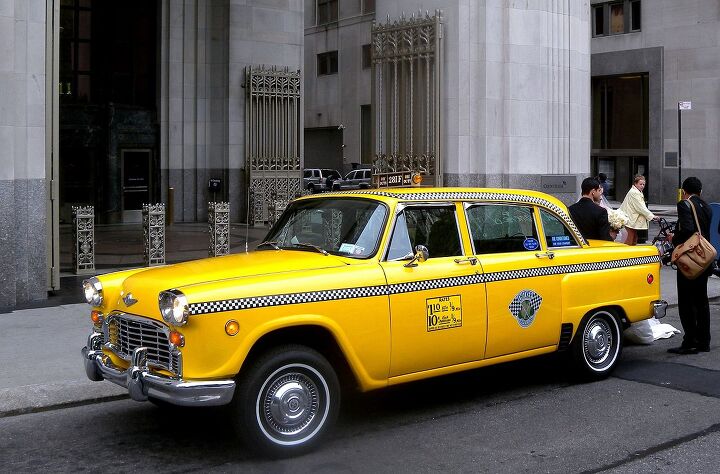
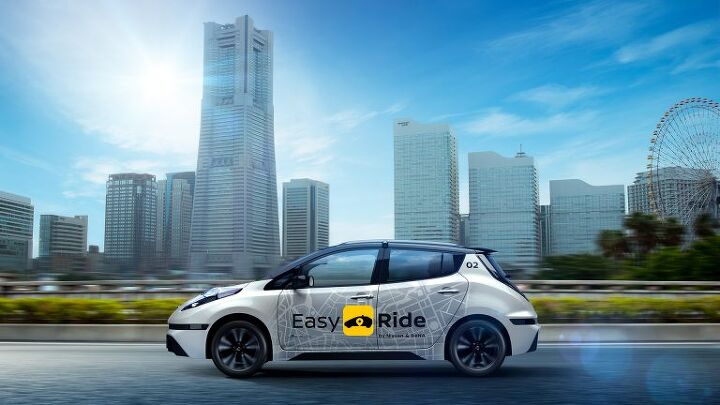

















Recent Comments